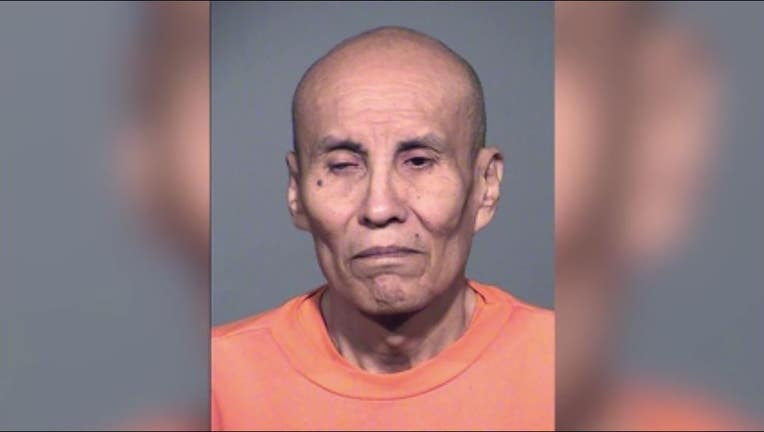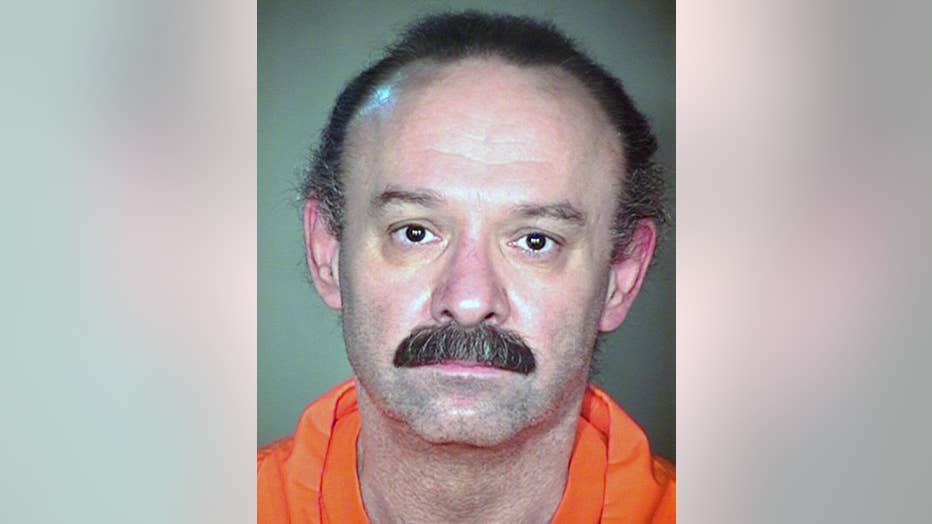Arizona death-row prisoner objects to proposed change in execution briefings

Clarence Dixon (Arizona Department of Corrections)
PHOENIX - A death-row prisoner who could be among the first in Arizona to be executed in almost seven years is opposing a move that would reduce the amount of time he would have to respond to the state’s request for his execution warrant.
Prosecutors asked the Arizona Supreme Court two weeks ago to modify the briefing schedule in their bid to get an execution warrant for Clarence Dixon after they revealed the shelf life of the state’s lethal injection drug was half as long than they previously thought.
The changes are being sought to accommodate for the drug’s shorter shelf life and keep the projected Oct. 19 execution date on track.
In a filing on July 6, Dixon’s lawyer Cary Sandman said the state’s new scheduling proposal would give her only four days to respond to the execution warrant request, whereas she had 10 days under the current schedule.
"The present dilemma was created by the state by prematurely seeking a briefing schedule to support issuance of a warrant for Mr. Dixon’s execution, without first obtaining reliable data essential to carrying out a lawful execution," Sandman wrote. "The solution to the state’s unpreparedness is not to violate Mr. Dixon’s rights by suspending the operation of this court’s rules, or to compromise the time the court has to deliberate."
Attorney General Mark Brnovich’s office didn’t return a call seeking comment.
Dixon’s projected Oct. 19 execution date was based around a belief by a compounding pharmacist that the drug pentobarbital had a shelf life of 90 days. The state now says until specialized testing on a sample batch of the drug is done, the shelf life of the pentobarbital to be compounded for Dixon’s execution would be 45 days.
Dixon and Frank Atwood are the first death row prisoners in Arizona to be eyed for execution since the 2014 death of Joseph Wood, who was given 15 doses of a two-drug combination over two hours. His attorney said the execution was botched.

It took nearly two hours for Joseph Wood to die after he was given 15 doses of the sedative midazolam and a painkiller. (file) (Arizona Department of Corrections)
States including Arizona have struggled to buy execution drugs in recent years after U.S. and European pharmaceutical companies began blocking the use of their products in lethal injections. Arizona corrections officials revealed earlier this year that they had finally obtained a lethal injection drug and were ready to resume executions.
Arizona has 115 inmates on death row.
Dixon was convicted and sentenced to death for the 1978 killing of Deana Bowdoin, a 21-year-old Arizona State University student.
Atwood was convicted in Pima County and sentenced to death for killing 8-year-old Vicki Lynn Hoskinson in 1984. Authorities say Atwood kidnapped the girl, whose body was found in the desert northwest of Tucson.

Taking a closer look at an Arizona murder case and the family the victim left behind
Deana Bowdoin was a promising ASU student, but she was raped and murdered in her own bed. And the man who did it is finally facing the ultimate punishment, but will it happen? FOX 10’s Troy Hayden reports.
Related stories
- Gas chamber restoration in Arizona sparks new debate over executions
- Decades on death row: Taking a closer look at an Arizona murder case and the family the victim left behind
- Arizona plans to seek warrants for 1st inmate executions in years
Tune in to FOX 10 Phoenix for the latest news:
Get breaking news alerts in the FREE FOX 10 News app. Download for Apple iOS or Android.

